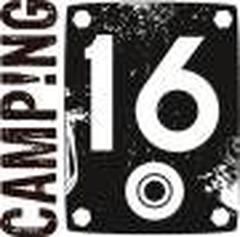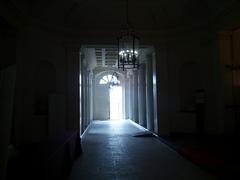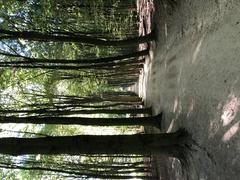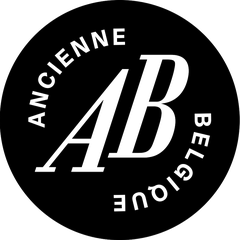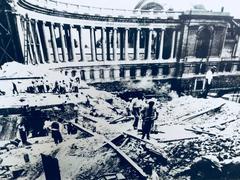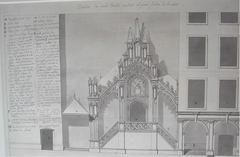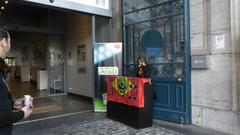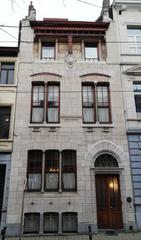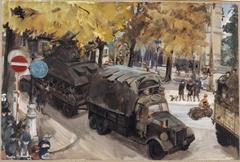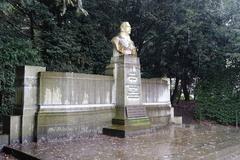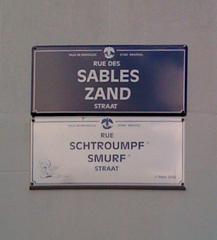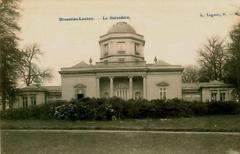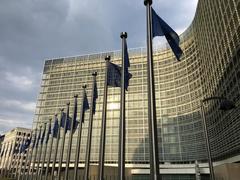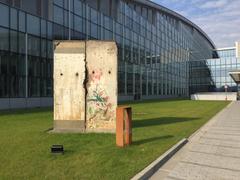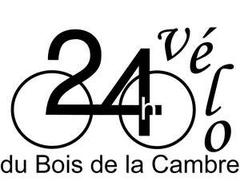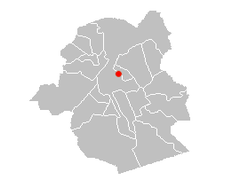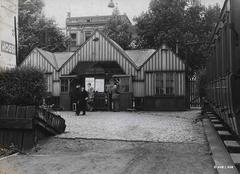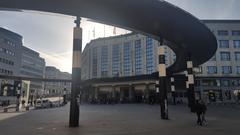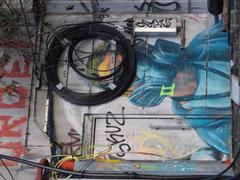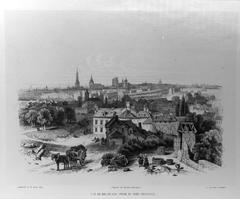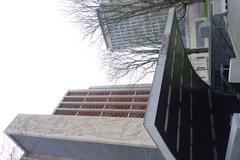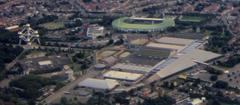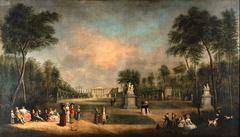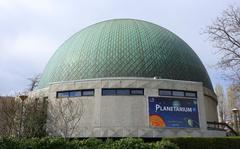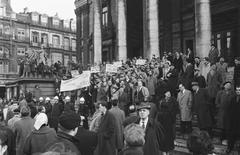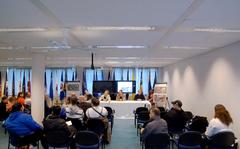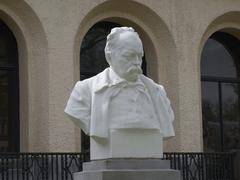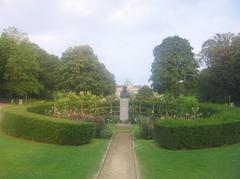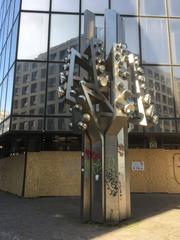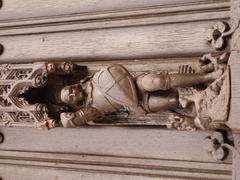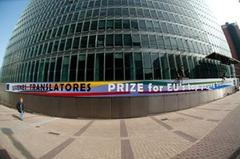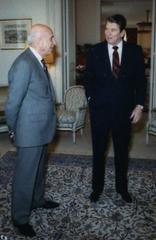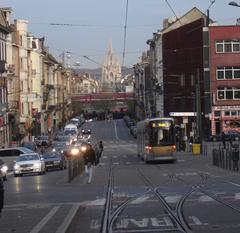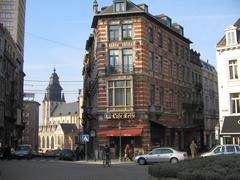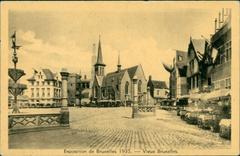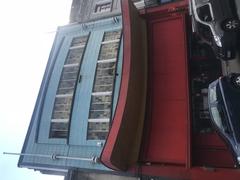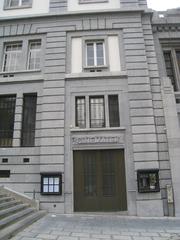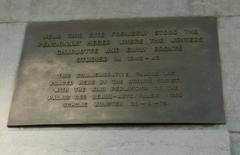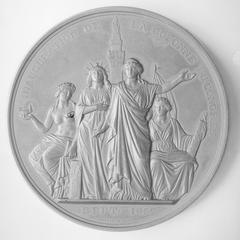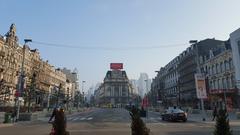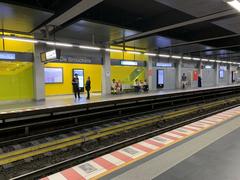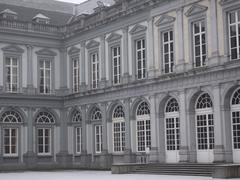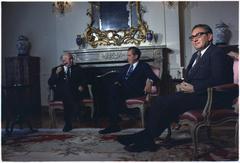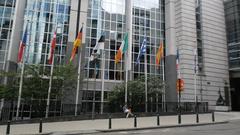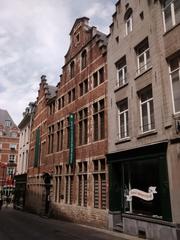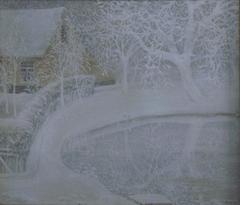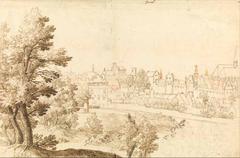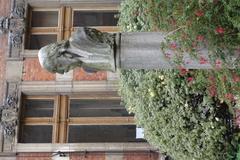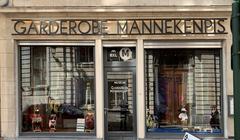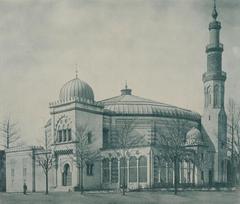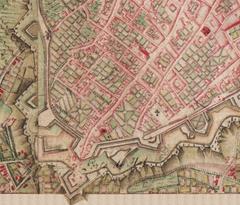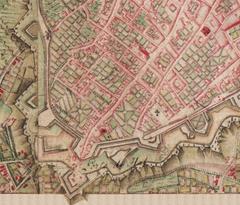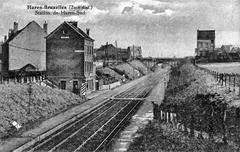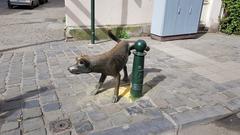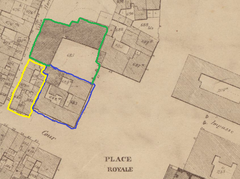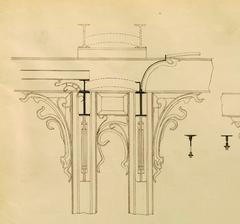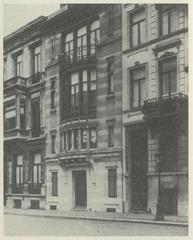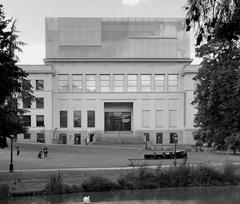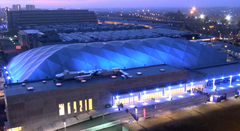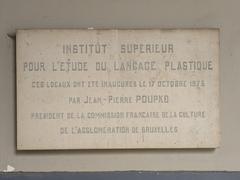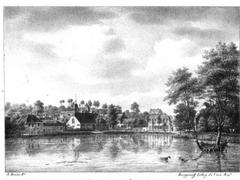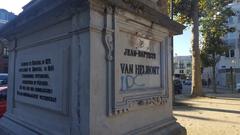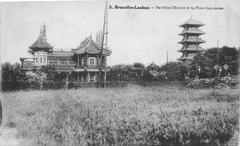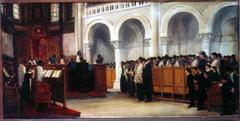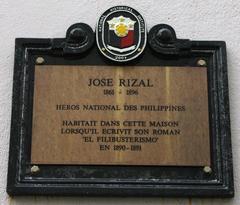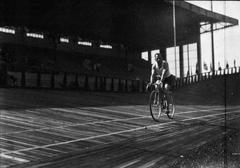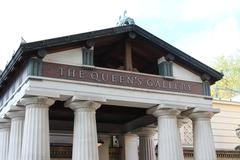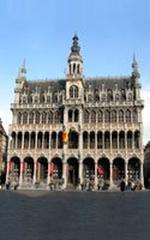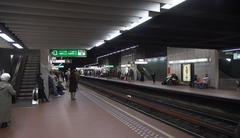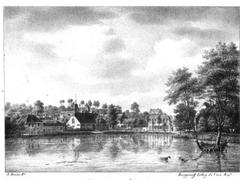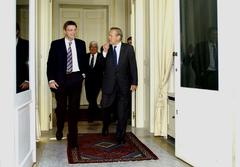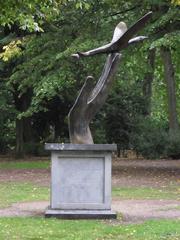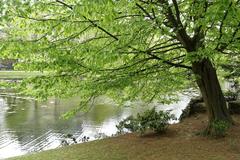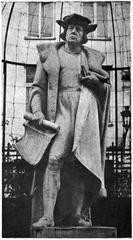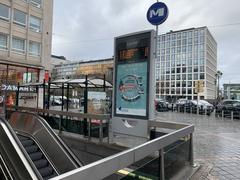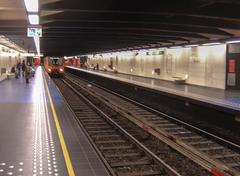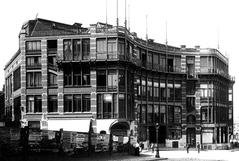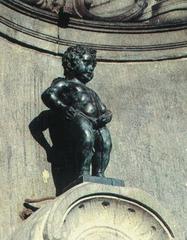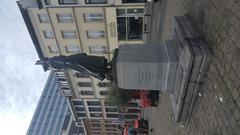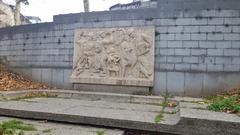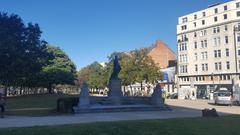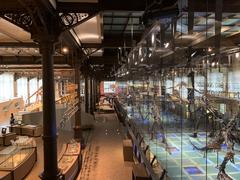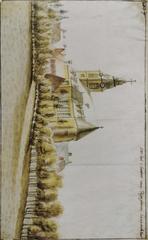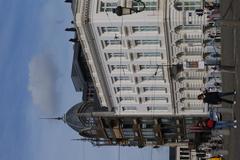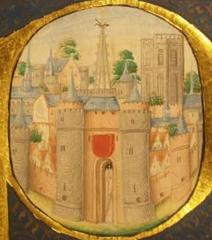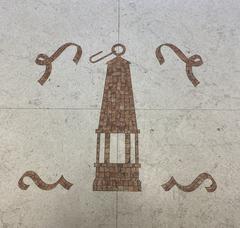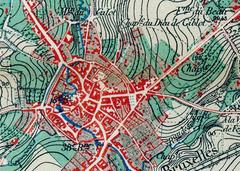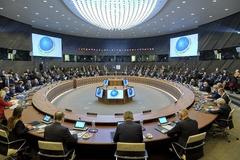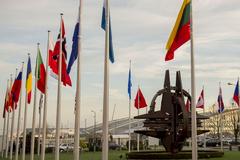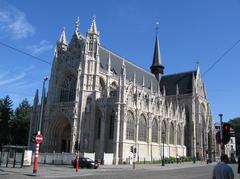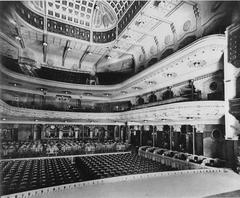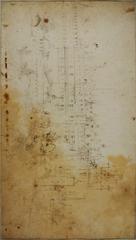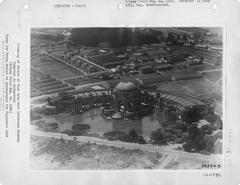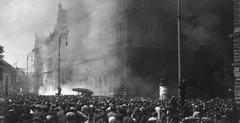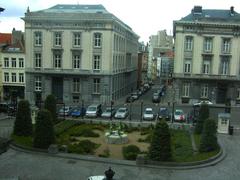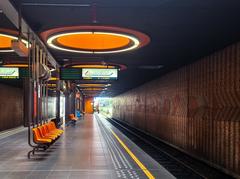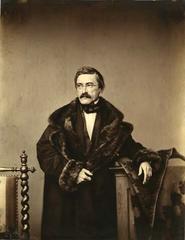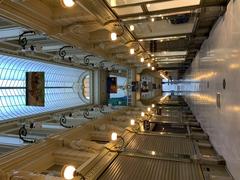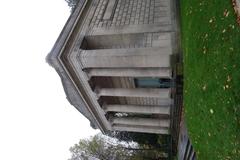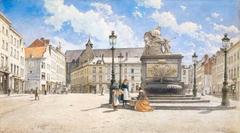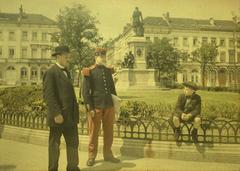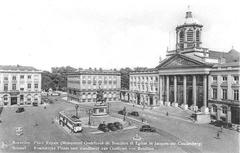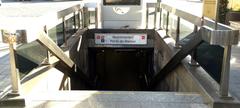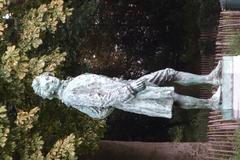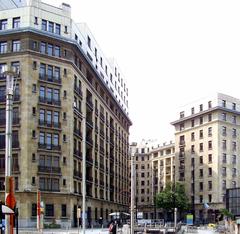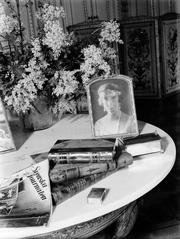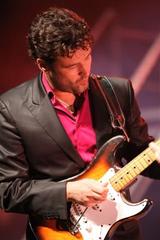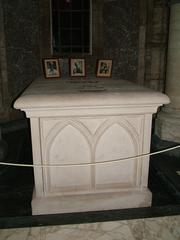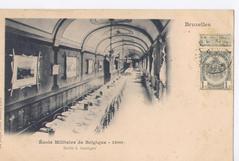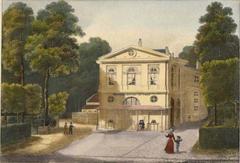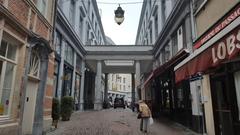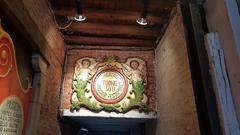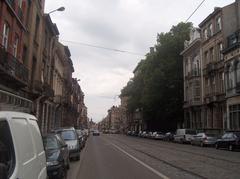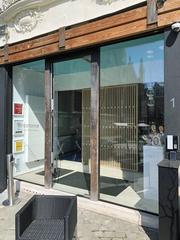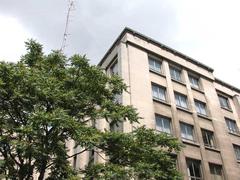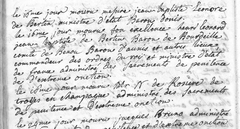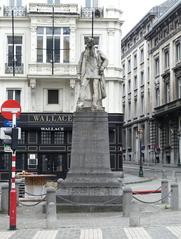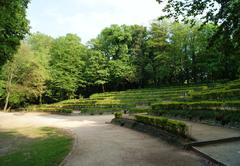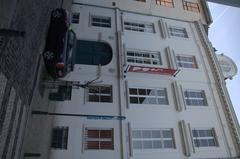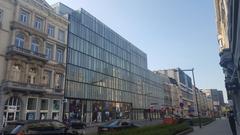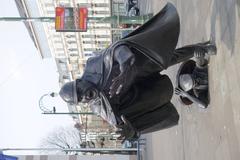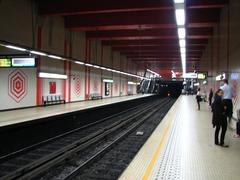Faculteit Voor Protestantse Godgeleerdheid Visiting Hours, Tickets, and Guide in Brussels
Date: 14/06/2025
Introduction
The Faculteit voor Protestantse Godgeleerdheid (FPTR) in Brussels stands as Belgium’s premier institution for Protestant theological education and research. Founded during World War II to meet the urgent needs of Belgian Protestant students, the FPTR has since evolved into a bilingual, ecumenical center of academic excellence. Today, it not only serves students and scholars but also welcomes visitors interested in its rich history, cultural significance, and unique place in Belgian society (nl.wikipedia).
This detailed guide provides everything you need to know about visiting FPTR: its historical background, visitor information, opening hours, accessibility, travel tips, and significance in both Belgian and European contexts. Whether you’re a prospective student, researcher, or traveler, use this resource to plan a rewarding visit.
Table of Contents
- Overview of FPTR and Its Significance
- History: From Wartime Origins to Academic Recognition
- Academic Excellence and Bilingual Programs
- Visiting Information: Hours, Accessibility & Tours
- Directions and Travel Tips
- Academic and Societal Role
- International Connections
- Facilities and Library
- Frequently Asked Questions (FAQ)
- Visitor Recommendations and Conclusion
- Sources
Overview of FPTR and Its Significance
Located in the heart of Brussels, FPTR is unique for its bilingual (Dutch and French) academic programs and its ecumenical approach to theological education. The faculty is officially recognized by royal decree and authorized to grant bachelor’s, master’s, and doctoral degrees in Protestant theology. Its mission extends beyond academia, fostering interfaith dialogue and religious pluralism in Belgium’s vibrant capital (wikiwand).
FPTR’s PRODOC library is a renowned resource for theological research, open to both students and visitors. The faculty regularly hosts public lectures, exhibitions, and events, emphasizing its commitment to cultural engagement and academic outreach (fptr.be).
History: From Wartime Origins to Academic Recognition
Early Roots and Wartime Origins
FPTR originated during World War II, when Belgian Protestant ministers Émile Hoyois, Matthieu Schyns, and William Thomas launched theological courses in Brussels to serve students unable to study abroad. These early courses, recognized by the Universities of Paris and Geneva, laid the groundwork for a permanent institution (nl.wikipedia).
Institutional Foundation and Growth
The faculty was formally established in 1950 by the Protestant Evangelical Church and the Methodist Church. The Belgian Evangelical Missionary Church joined in 1955. Initially located at Home Becker, FPTR moved to larger premises as its student body grew, settling at its present address on Bollandistenstraat in 1965 (wikiwand).
Official Recognition and Academic Expansion
In 1963, FPTR was officially recognized by royal decree as a university-level institution. Its unique bilingual structure allows it to serve both Dutch- and French-speaking communities, reflecting the linguistic diversity of Brussels and Belgium (de.wikipedia). The faculty has maintained strong ties to international universities, furthering its academic reputation.
Academic Excellence and Bilingual Programs
FPTR is the only Protestant faculty in Belgium offering comprehensive programs in both Dutch and French. Its curriculum covers biblical studies, church history, philosophy, ethics, and contemporary religious issues. The faculty’s teaching staff is divided by language section, ensuring high-quality, tailored instruction (fptr.be). External evaluations, such as those by the Flemish Interuniversity Council, have affirmed the academic quality of its degrees.
FPTR’s library and documentation center provide resources not just for students but also for external researchers, making it a hub of theological and religious scholarship.
Visiting Information: Hours, Accessibility & Tours
Address: Rue des Bollandistes 40, 1040 Etterbeek, Brussels
- Opening Hours: Monday to Friday, 9:00 AM – 5:00 PM. Check the official website for holiday schedules or special events.
- Admission: Free for individual visitors. Library and public events are open to all; some conferences may require registration.
- Guided Tours: Available by request; contact administration in advance.
- Accessibility: The building is wheelchair accessible, with elevators and adapted restrooms.
- Photography: Permitted in public areas for personal use; professional photography requires permission.
Directions and Travel Tips
- By Public Transport: FPTR is easily accessible via Brussels’ public transport. Nearest metro stations: Merode and Thieffry (both within a 10-minute walk). Local buses and trams serve the area.
- By Car: Limited street parking is available; public transport is recommended due to city congestion.
- Nearby Attractions: Parc du Cinquantenaire, European Quarter, Royal Museums of Fine Arts, Flagey Square.
For detailed travel planning, consult Brussels public transport maps and schedules.
Historical Context: Protestantism in Belgium
Protestantism has a long, resilient history in Belgium, surviving challenges since the Reformation. FPTR’s existence symbolizes the enduring presence and diversity of Protestant communities, particularly as a minority in a predominantly Catholic country (fptr.be). The faculty’s archives and library reflect this rich legacy and are a valuable resource for researchers.
Academic and Societal Role
FPTR serves as Belgium’s leading Protestant theological institution, training clergy, educators, and scholars for both church and society. It is closely affiliated with the United Protestant Church in Belgium (VPKB) and maintains ecumenical collaboration, reflecting Belgium’s multicultural and multireligious landscape (nl.wikipedia).
The faculty is open to anyone interested in critical, scientific approaches to religious studies, making it a center for academic and interfaith dialogue.
International Connections
FPTR is internationally connected, with early recognition from Paris and Geneva and ongoing participation in European academic exchanges. Its bilingual programs and Brussels location make it attractive to international students and scholars (fptr.be).
Facilities and Library
FPTR’s building on Bollandistenstraat houses classrooms, administrative offices, and the PRODOC library, which boasts around 40,000 volumes on theology, history, and religious studies. The documentation center provides access to periodicals and archival materials. Digital learning initiatives are expanding, increasing accessibility for remote learners.
Frequently Asked Questions (FAQ)
Is FPTR open to the public?
Yes, visitors are welcome during opening hours. Guided tours can be arranged in advance.
Are there admission fees?
No, access to the faculty and its library is free. Some special events may require registration.
Can anyone enroll in FPTR’s academic programs?
Yes, admission is open to qualified students; details are available on the official website.
Is the building accessible for people with disabilities?
Yes, FPTR is fully accessible.
Are lectures held in English?
Dutch and French are primary languages, but English is widely understood and used in some contexts.
Visitor Recommendations and Conclusion
Visiting the Faculteit voor Protestantse Godgeleerdheid offers a unique window into Belgium’s Protestant heritage, academic life, and cultural diversity. To make the most of your visit:
- Plan Ahead: Confirm opening hours and tour availability.
- Use Public Transport: Efficient and convenient in Brussels.
- Explore Nearby: Combine your visit with trips to local museums and historical sites.
- Engage: Attend public lectures or events for deeper insight.
For the latest information on events and academic programs, consult the FPTR official website and download the Audiala app for cultural tips and guided tours in Brussels.
